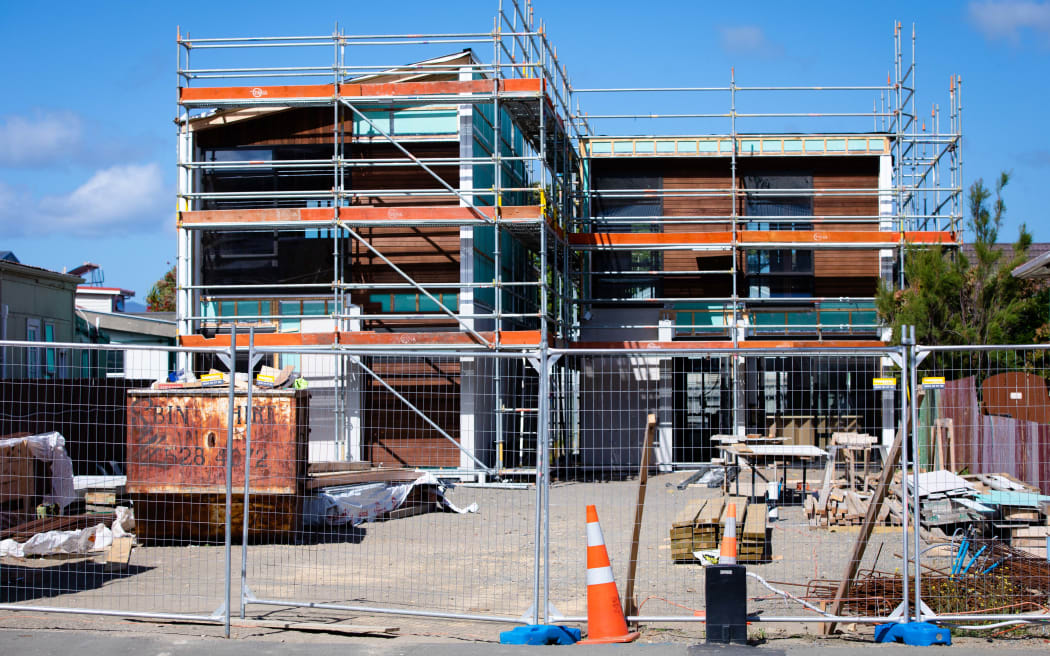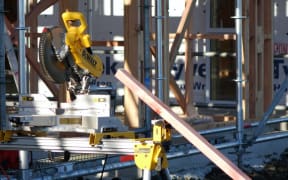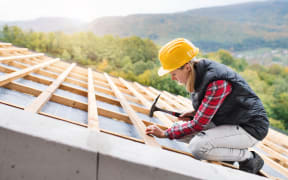
A construction sector boss says it is about time the sector had clear guidelines on what constitutes good behaviour. Photo: RNZ / Angus Dreaver
A toolkit to help with overcoming sexual harassment and bullying in the trades has been launched, with a call out for employers and employees to make the sector more welcoming for women.
Keep It Decent, launched by the Workforce Development Council with industry collaboration, sets out rules of conduct and examples of obstacles for women such as sexual harassment.
Women make up 15 percent of the trades, just 2.6 percent are actually on the tools.
But they bear the brunt of most of the sexual harassment and bullying, most of which comes from men in more senior positions.
The Workforce Development Council has begun to try and curb the problem by making the rules clear for employees and employers.
The toolkit includes a checklist for someone to determine if they have sexually harassed someone at work, and examples of harassment with explanations.
Council construction arm Waihanga Ara Rau chief executive Phillip Aldridge said the sector needed to call out bad behaviour, be open to diversity and celebrate any positives.
"These guidelines are the first of many steps toward addressing this change," Aldridge said.
Builder Aroha Savage said in her first few years in the industry, inappropriate behaviour was commonplace.
"I can just be walking to my car and you can hear guys from up on the scaffolds just whistling out," she said.
"It's just the way guys talk about females, I don't know if they know I'm listening - but I was definitely around and it made me feel uncomfortable."
Putting up with 'rubbish'
National Association of Women in Construction president elect Colleen Upton said it was about time the sector had clear guidelines on what constituted good behaviour.
She encountered many young women wanting a career in a trade and also met their worried parents.
"The question they ask me is 'will my daughter be safe?'.
"Now, they don't mean 'do I have to worry about hammers falling on her head?', they mean 'will she be respected, will she be safe to get on and do the job?'."
Upton, who is also a business owner in the industry, said her female staff have had to put up with a lot of "rubbish" over the years while on other sites.
Toilets without sanitary bins, topless calendars and comments about their appearance were common ordeals.
As well as the more serious instances of harassment and bullying, there was a lack of understanding and an unwillingness to have women on board, Upton said.
'Man in a van' type jobs - teams of two or three people - were more hesitant about employing women.
"There's three or four things that get said to me quite often when I suggest employing a woman. [The men] seem quite uncomfortable," she said.
"It can be, 'oh, my missus won't like that', then it's 'oh what if they get pregnant?' - well, they can do the job, pregnancy is not a disease. The other one which I really laugh at is 'what if they want to talk to me about periods?'."
Hanga-Aro-Rau deputy chief executive Samantha McNaughton said the guidelines set out a baseline of what was expected from everyone in the sector.
"We need to shift the narrative from blame and fear to change and respect; from talk to action. These guidelines are a practical toolkit to enable everyone from the big companies with HR departments down to the 'Man with a Van' and his small team, to skill up and move forward to ensure a safe and respectful workplace for all employees," she said.
More information is on the Trade Careers site.







